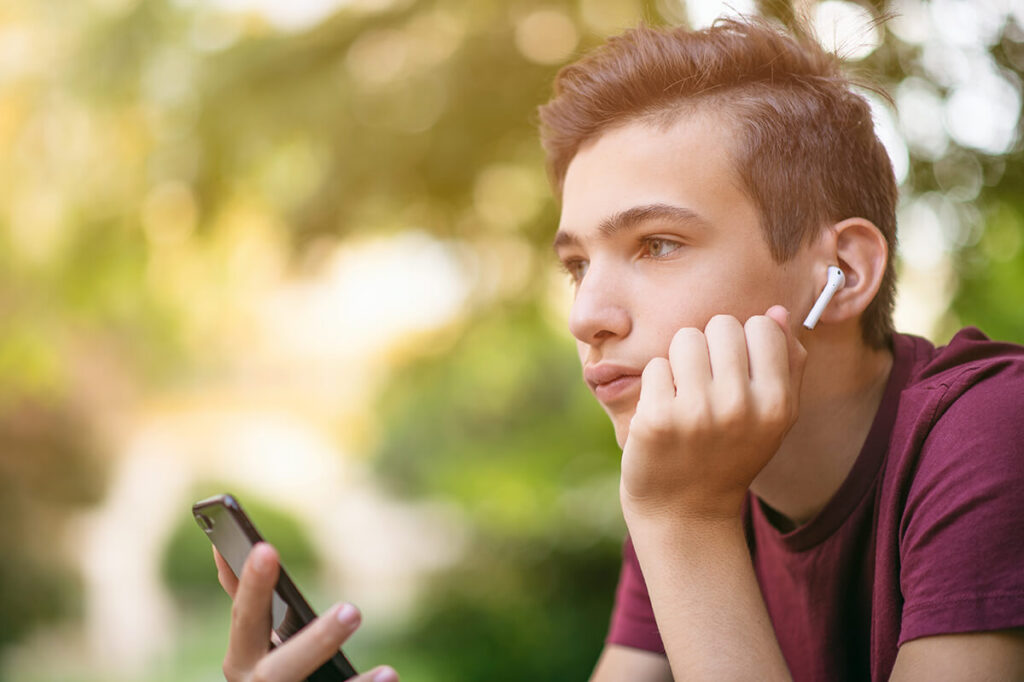Alcohol can cause both physical and psychological addiction. Anyone, regardless of age, race, or gender, can develop alcohol dependency, as alcoholism doesn’t discriminate. Alcohol intoxication can increase anger, lower inhibitions, and cloud your judgment, leaving you more prone to engaging in regrettable or dangerous behaviors. Another consequence of alcohol is that drinking and social media can increase the chances of experiencing conflict with others.
Alcohol intoxication can cause you to fight and argues with others. Since social media makes it easier than ever to communicate with others, engaging in social media websites or apps while drunk can create a toxic combination. To learn about our adolescent addiction treatment center, contact Foothills at Red Oak at 866.300.5275.
What is Alcoholism?
Each year, roughly 401,000 American adolescents meet the criteria for an alcohol abuse disorder. While alcohol is legal, it is prone to abuse. When you compulsively drink despite experiencing negative consequences because of your drinking and having a strong desire to remain sober, you meet the criteria for an alcohol abuse disorder. Alcoholism is a dangerous condition because it can cause severe and permanent medical problems. Your liver is capable of filtering one serving of alcohol every 90 minutes. Consuming large amounts of alcohol can cause your liver to become overworked.
While intoxication can create relaxing feelings, it can also cause negative emotions, such as anger. This can increase your chances of getting into fights with others or making risky decisions. Alcohol causes your brain to release a powerful rush of neurotransmitters that cause the pleasurable effects of intoxication. Once intoxication ends, you have a shortage of neurotransmitters. This can cause increased cravings, as your brain associates alcohol with pleasure.
Drinking can also lead to physical dependency. If you develop a physical addiction to alcohol, you can face potentially fatal withdrawal symptoms if you suddenly quit drinking. That makes it imperative to contact an alcohol addiction treatment center when you decide to begin your recovery, as rehabs can administer medications to prevent withdrawal complications such as delirium tremors.
Common signs of alcoholism include:
- Experiencing blackouts when you drink
- Feeling guilt, shame, or remorse about your drinking
- Driving while drunk
- Experiencing legal problems because of your drinking
- Having friends or family members confront you about your drinking
- Attending work or school while drunk
Drinking and Social Media
When you are drunk, you’re more likely to do things you would avoid doing while sober. That can make drinking and social media use a dangerous combination. Drinking and social media are a toxic mix because you can post things that are embarrassing or offensive while drunk. This is because alcohol decreases your inhibitions, meaning you’re more likely to engage in behaviors that are risky or dangerous.
For example, if you are drinking and social media apps are on your smartphone, you may decide to contact an ex-partner. Another risk of drinking and social media use is that you may post something while drunk that could cause issues with your employer or school. If you are upset while drunk and post a comment that threatens someone, you could face criminal charges, termination from your job, or expulsion from school.
When you are drinking and social media is easily accessible, you can post things that damage your relationships and your reputation. If you engage in behavior on social media that you regret when you’re sober, it can indicate that you have a drinking problem or alcoholism.
Alcoholism Treatment
When you struggle to control or stop your drinking, it can be difficult to live a normal and healthy life. If drinking and social media use cause detrimental consequences, it can also demonstrate that your alcohol use is harming your daily life. When you recognize that you have a drinking problem, early treatment is the best way to support your recovery. We offer a wide variety of treatment programs, including:
- Cognitive-behavioral therapy
- Dialectical behavior therapy
- Art therapy
- Recreational therapy
- Group therapy
Contact us today at 866.300.5275 to discuss how our programs can help you achieve recovery.

